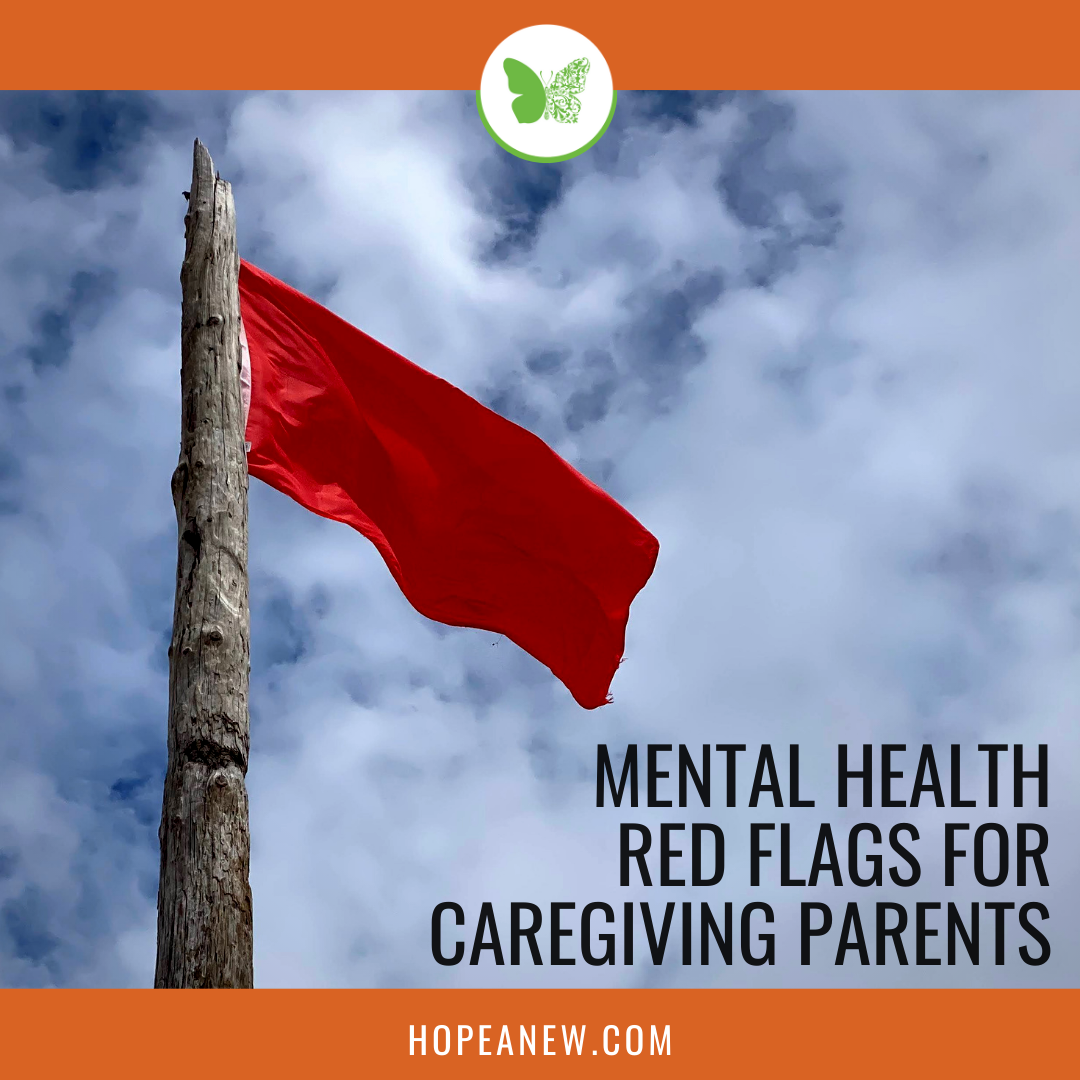2 Mental Health Red Flags for Caregiving Parents
2 mental health red flags for caregiving parents? Are you kidding me? I’m waving at least a dozen red flags every day!
That would have been my reaction to the title of this post when I was in the thick of caring for a medically-fragile kid. In fact, that would have been my reaction as recently as a month ago. But I had a lightbulb moment between then and now.
The lightbulb moment came while I facilitated a class for teachers about post-traumatic stress disorder (PTSD) in kids. We were discussing childhood symptoms, also known as behaviors, displayed by traumatized children. The class members wanted to know what kinds of behaviors are indicators that the trauma has evolved into PTSD.
“It’s not so much the kind of behavior,” I explained, “because most kids display these kinds behaviors at one time or another. “Red flag indicators for me are the intensity and duration of the behavior. An example would be what happens after telling 2-year-olds they can’t have a cookie. More than likely, a 2-year-old will throw a tantrum. However, 2-year-olds living with unresolved trauma and PTSD will pitch magnificent fits that are long and loud. That’s intensity.
Similar tantrums continue to occur whenever these 2-year-olds are denied anything long after the child should have moved past the terrible 2s. That’s duration.”
The words had barely come out of my mouth before the lightbulb turned on: Intensity and duration of behaviors can be 2 mental health red flags for caregiving parents, too.
I mean, let’s face it. Parents raising kids with special needs and disabilities face plenty of attacks on their mental health, including traumatic stress. Such as the stress of overwhelming, unrelenting caregiving demands. The trauma of sending a child off to surgery or hearing the heart monitor flatline. The stress of trying to manage unmanageable behaviors. The trauma of a receiving a difficult diagnosis.
Stressed and traumatized parents who want to be proactive about their mental health can do so by assessing the intensity and duration of their own reactions in certain situations.
For example, it’s normal for parents of kids who were hospitalized to avoid visiting hospitalized family and friends for a while. But it’s not normal if that parent has a racing heartbeat or sweaty palms while driving by a hospital. That’s intensity. It’s also not normal for that reaction to continue years after a child’s final hospital stay. That’s duration.
It’s normal for parents to get tired of taking children with autism to weekly behavioral therapy. But it’s not normal to be utterly exhausted after therapy to the extent that the parent wants to go to bed and pull the covers over their heads once the appointment is over. That’s intensity. It’s also not normal for that level of exhaustion to persist for several months or longer. That’s duration.
Here’s one more. If you have received negative news regarding your child via the phone–it could a difficult diagnosis, behavior or academic concerns from school, or even that an in-home care provider can’t make it again–you may experience a sense of dread when your phone rings. That’s normal. But dealing with the dread by refusing to answer the phone (intensity) for a week or a month or more (duration) is not.
By applying these 2 mental health red flags for caregiving parents in your own life, you can be proactive about your personal health. If you decide to seek a therapist, this post about how to find a trauma therapist can help you locate a mental health care professional where you live.
Written by Jolene Philo


